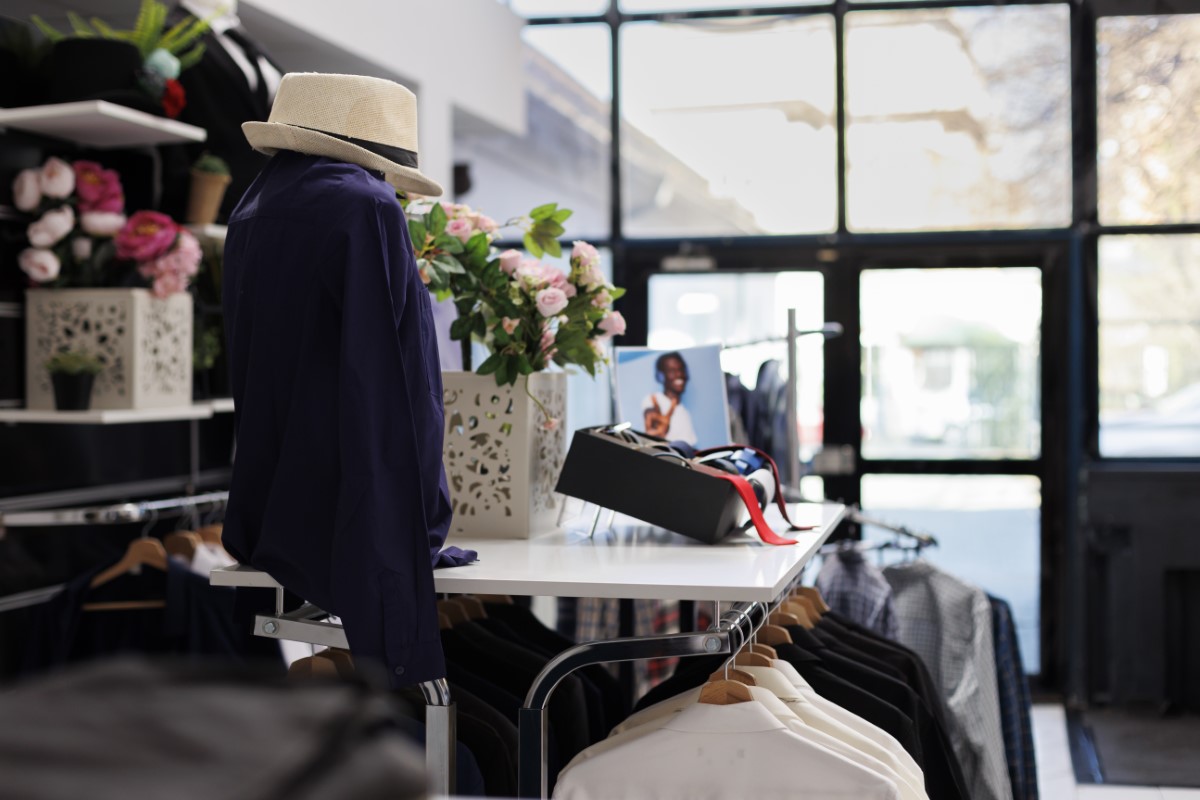
The fashion industry is dynamic and fiercely competitive, with new brands emerging regularly and established names constantly evolving. For a fashion brand company to not only survive but thrive, it must possess certain qualities that set it apart from the rest. These key success factors contribute to brand leadership, solidify brand reputation, and ensure long-term success in the ever-changing fashion industry. In this article, we’ll explore the top 10 qualities of a leading fashion brand company, offering insights into what makes these brands industry leaders.
1. Strong Brand Identity
A leading fashion brand company has a distinct and strong brand identity that resonates with its target audience. Brand identity encompasses everything from the logo, color schemes, and typography to the overall brand message and the story it tells. A successful brand identity is consistent across all platforms and communication channels, making it easily recognizable.
For example, think of iconic brands like Chanel or Nike. These companies have created strong brand identities that are instantly recognizable worldwide. Chanel’s interlocking Cs and Nike’s swoosh are not just logos; they represent a promise of quality, style, and innovation. A leading fashion brand knows that its identity is its most valuable asset, and it protects and nurtures this asset carefully.
2. Innovative Product Design
Innovation in product design is a hallmark of any leading fashion brand company. The fashion industry is driven by trends, but a true leader in the market doesn’t just follow trends—they set them. Innovation in design means offering something new and exciting, whether it’s through the use of new materials, cutting-edge technology, or unique aesthetics that challenge the status quo.
Take Alexander McQueen, for instance. The brand is known for its bold, avant-garde designs that push the boundaries of fashion. This level of innovation not only attracts attention but also builds a reputation for being a trendsetter in the fashion industry. Brands that innovate successfully often find themselves leading the market rather than merely participating in it.

3. Quality and Craftsmanship
Quality and craftsmanship are non-negotiable in the world of leading fashion brands. Consumers today are more discerning than ever, and they seek out brands that offer high-quality products made with superior craftsmanship. A commitment to quality ensures customer satisfaction, repeat business, and a strong brand reputation.
Leading fashion brands invest in the finest materials and employ skilled artisans to create their products. For example, luxury brands like Hermès are renowned for their meticulous attention to detail and the use of high-quality materials. This dedication to quality has helped Hermès maintain its status as a leader in the fashion industry for decades.
4. Sustainability and Ethical Practices
In recent years, sustainability and ethical practices have become increasingly important to consumers. A leading fashion brand company recognizes this shift and integrates sustainability into its business model. This includes using eco-friendly materials, reducing waste, ensuring fair labor practices, and being transparent about its supply chain.
Brands like Patagonia and Stella McCartney have built their reputations on sustainability and ethical practices. Patagonia, for instance, is known for its commitment to environmental responsibility, from using recycled materials to advocating for environmental causes. By prioritizing sustainability, these brands not only appeal to conscious consumers but also contribute positively to the environment and society.
5. Effective Marketing and Branding Strategies
Marketing and branding are crucial components of a fashion brand’s success. A leading fashion brand company employs effective marketing strategies that resonate with its target audience and reinforce its brand identity. This includes everything from social media campaigns and influencer partnerships to traditional advertising and public relations.
Gucci, for example, has successfully used social media and influencer marketing to reach younger, tech-savvy consumers while maintaining its luxury image. The brand’s ability to stay relevant in the digital age while preserving its heritage is a testament to its effective marketing strategies. A strong marketing strategy not only increases brand visibility but also drives customer engagement and loyalty.

6. Customer-Centric Approach
A customer-centric approach is essential for any leading fashion brand company. Understanding and meeting the needs of customers is key to building brand loyalty and ensuring long-term success. This involves offering excellent customer service, personalized experiences, and products that cater to the preferences and lifestyles of the brand’s target audience.
Brands like Nordstrom are known for their exceptional customer service and attention to detail. By putting the customer first, Nordstrom has built a loyal customer base that continues to grow. A customer-centric approach also involves listening to customer feedback and using it to improve products and services, ensuring that the brand remains relevant and responsive to market changes.
7. Global Presence and Cultural Adaptability
In today’s interconnected world, a global presence is a must for any leading fashion brand company. However, it’s not just about being available in multiple countries; it’s about understanding and adapting to different cultures and markets. A successful brand tailors its products, marketing strategies, and even its store designs to appeal to diverse cultural preferences.
For example, Zara has mastered the art of cultural adaptability by offering products that cater to the specific tastes of different regions while maintaining a consistent brand image. This ability to navigate and thrive in various cultural contexts has made Zara a global leader in the fast fashion industry. A strong global presence, combined with cultural adaptability, ensures that a brand remains relevant and competitive on the world stage.
8. Innovation in Technology and Retail
The fashion industry is rapidly evolving, and technology plays a significant role in this transformation. A leading fashion brand company stays ahead of the curve by embracing new technologies and incorporating them into its retail and production processes. This includes everything from e-commerce platforms and mobile apps to virtual fitting rooms and AI-driven design tools. PLM software is one of these tools, which emphasizes real time data management.
Product Lifecycle Management (PLM) software is increasingly becoming a critical tool for leading fashion brand companies. PLM software offers a single source of truth and allows brands to manage the entire lifecycle of a product, from initial concept through to design, production, and eventual sale. PLM system integrates various aspects of product data, development, improving collaboration, reducing time to market, and ensuring consistency across all products.
A leading fashion brand company understands the value of PLM software in streamlining operations and maintaining high standards of quality and design. By using PLM software, brands can track every phases of product development, ensuring that the final product aligns with the brand’s vision and quality standards. Additionally, PLM software helps in managing resources more efficiently, cost savings, and minimizing errors, which are crucial in maintaining competitiveness in the fast-paced fashion industry.
For example, brand leaders like Adidas and Tommy Hilfiger have adopted the benefits of PLM solutions to improve their product development processes. By leveraging PLM software, these brands can respond more quickly to market demands, reduce waste, and ensure that their products meet the exacting standards expected by their customers.

9. Strong Leadership and Vision
Behind every successful fashion brand is strong leadership with a clear vision for the future. A leading fashion brand company is guided by leaders who are not only passionate about fashion but also possess a deep understanding of the industry and the ability to navigate its challenges. These leaders set the tone for the brand, inspire their teams, and make strategic decisions that drive the brand’s growth.
Consider the leadership of LVMH, the world’s largest luxury goods conglomerate, led by Bernard Arnault. Under his leadership, LVMH has acquired and nurtured some of the world’s most prestigious fashion brands, including Louis Vuitton, Dior, and Fendi. Arnault’s vision and business acumen have been instrumental in making LVMH a global leader in the luxury fashion industry.
10. Brand Reputation and Legacy
Finally, a leading fashion brand company understands the importance of building and maintaining a strong brand reputation and legacy. Reputation is built over time through consistent quality, innovation, and customer satisfaction. A strong legacy, on the other hand, is cultivated by staying true to the brand’s core values and principles, even as it evolves.
Brands like Levi’s have built a reputation for quality and durability over decades, becoming a staple in the fashion industry. Levi’s has successfully maintained its legacy by staying true to its roots while adapting to modern trends and consumer demands. A solid brand reputation and legacy not only attract loyal customers but also ensure the brand’s longevity in the industry.
Conclusion
In the competitive world of fashion, only the strongest brands rise to the top. A leading fashion brand company is one that excels in multiple areas, from brand identity and product design to customer-centricity and sustainability. These qualities not only distinguish a brand from its competitors but also ensure its long-term success in the ever-evolving fashion industry.
By focusing on these key success factors, including the strategic use of PLM software, fashion brands can build strong reputations, foster brand leadership, and create lasting legacies that stand the test of time. Whether you’re an aspiring fashion entrepreneur or an established brand looking to elevate your status, understanding and embodying these qualities is essential to becoming a leader in the fashion industry.





Leave a Reply